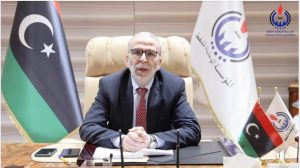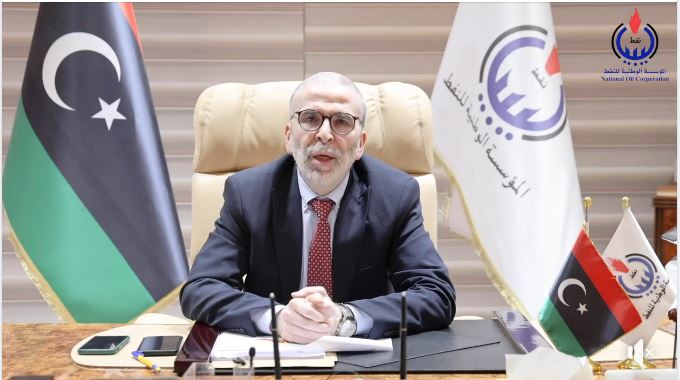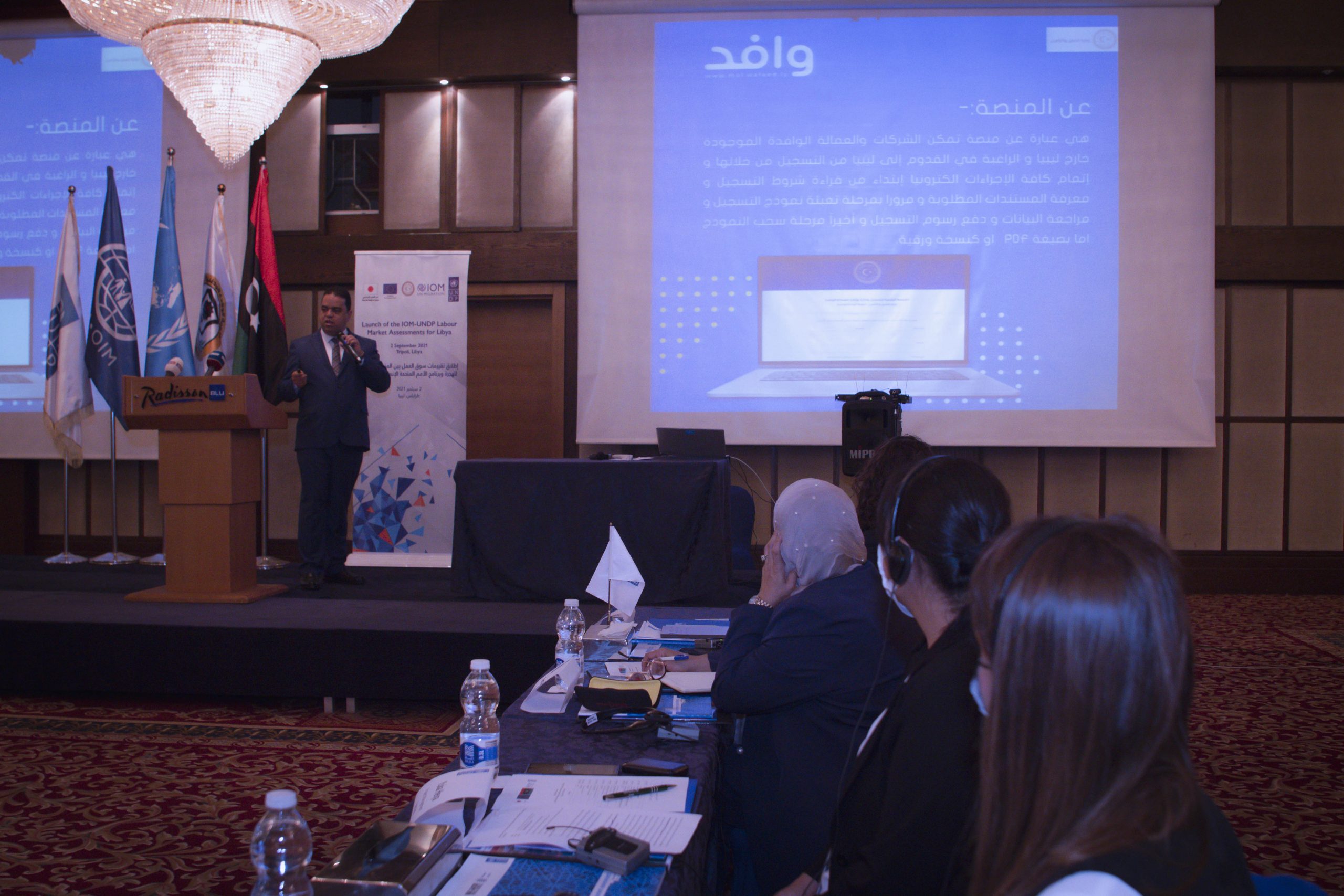By Sami Zaptia.

London, 2 September 2021:
National Oil Corporation (NOC) chairman Mustafa Sanalla today launched a scathing attack on Oil Minister Mohamed Aoun.
The attack came after relations between the two deteriorated following first, Aoun’s request that the NOC Board be reselected, and then Aoun’s attempts to suspend Sanalla from his post and refer him to administrative investigation.
In a 26-minute video address posted on the NOC’s Facebook page, Sanalla did away with the usual decorum and laid into Aoun in a very openly personal and impolite manner. He even questioned Aoun’s integrity and acumen.
Legality of the NOC Board
With regards to Aoun’s technical point that the current NOC Board was chosen in violations of the existing laws, Sanalla said that Aoun had lost all the cases he had put forward before the administrative court. Sanalla insisted that the NOC Board were selected correctly.
Aoun sacked from Millitah Oil
Sanalla then laid into Aoun for the fact that he had been sacked from Mellitah Oil and Gas in 2011 ‘‘in the circumstances of the revolution’’, raising implicit questions about Aoun’s integrity and 17 February Revolution integrity.
Launching an unjustified media campaign against oil sector
Sanalla then went on to accuse Minister Aoun of launching an unjustified media campaign against the oil sector. He said instead of helping solve problems and helping the NOC and oil sector, Aoun had become an obstacle to the NOC – the only Libyan institution that was able to work in extremely difficult conditions.
Aoun under pressure from hostile parties?
Sanalla accused Aoun of seeking to destabilize the NOC financially and legally. Hailing the NOC for its unity and work under three different governments he condemned Aoun, despite having worked in it, for failing to thank the NOC and instead destabilizing it.
Sanalla said Aoun was too old having passed the age of retirement and questioned his lack of wisdom.
The NOC chairman also pointed out that the NOC is a very old and well-established institution – much older than the Oil Ministry formed by the Abd Alhamid Aldabaiba in Spring this year.
Sanalla then personalised the issue again, asking Aoun: “Are there pressure on you from hostile parties, or do you have personal hostility because of your retirement in 2011?”
Sanalla pointed out how he and the NOC welcomed Aoun upon his appointment, furnishing him with an office in their building and covering his office’s costs. He said despite talking to him for three hours and explaining all the difficulties the NOC faced, Aoun had turned into a ‘’stumbling block’’.
The NOC chairman accused Minister Aoun of not passing on correspondence to the Cabinet, not answering questions to problems or solving the NOC’s problems and failing to raise the NOC’s burden.
Instead, all Aoun did was keep asking questions – questions that Sanalla said they did not have time to answer and respond to because they are busy.
Correct rate of oil revenues from foreign oil companies
Speaking to Libyan media, Aoun had questioned whether the NOC was getting its fair share of oil revenues from foreign oil companies. He also questioned the deal to sell Marathon Oil’s 16.33 percent stake in Waha Oil to Total.
Speaking to a Libyan newspaper, Aoun had said that Sanalla “does not respond to us and does not take much of what we ask of him,” considering that he is “supported by the American and British embassies.” Aoun insisted on “his right to request the change of Sanalla and his board of directors, because this is an internal matter and a sovereign act, and one should not submit to any pressure.”
According to Minister Aoun, Sanalla, who has been in charge since 2014, did not cooperate with the Ministry of Oil and the House of Representatives regarding the deal to sell the American Marathon company’s stake in the Waha company to the French Total company when the House Energy Committee requested information from the NOC about the deal completed in the 2020.
Sanalla, however, insisted that oil revenues were distributed correctly and that the sale of Marathon Oil’s shares to Total were legal and commercially the correct thing to do. He said Libya did not have the finances to buy the shares. He said Aoun was misleading public opinion.
Analysis:
Aldabaiba must decide
It is unclear how Sanalla and Aoun can continue to work together. Sanalla showed utter contempt for Aoun and it is unclear how Prime Minister Aldabaiba will be able to continue to run his government and Libya’s sensitive oil sector – without removing one of them from office.
Having personalised the issue, Sanalla then said ‘‘but there was no personal animosity towards you’’ and ‘‘colleagues accepted’’ your appointment as Oil Minister. But what Sanalla said in his statement and how he said it makes it impossible for him and Aoun to continue to work together efficiently.
One problem is that Sanalla has been the king of the Libyan oil sector now for nearly seven years. He has gotten used to working independently without a direct overlord in the form of an oil minister.
Too often, Sanalla has used the excuse that the NOC is a technical entity and that Libyan politicians should keep out of it. Taking advantage of weak government and parliament and the subsequent legitimacy vacuum, he has followed the same line as Central Bank of Libya governor El-Kaber, using technocracy as the veil to stop accountability and political oversight.
Rightly or wrongly, there is also the perception that both Sanalla and El-Kaber had become too close to foreign states and the only reason they are still in post is because of the support they receive from certain foreign states.
Sunday will be the day the Prime Minister must decide. He has called both Sanalla and Aoun to a meeting.
Keeping both could seem the easier option. Sanalla will dig his heals in and no doubt his foreign backers are already lobbying on his behalf. But Aoun also has his supporters – but he could be easier to sack. Libya can survive and has lived without an oil ministry for years. But Libya needs an effective NOC.









